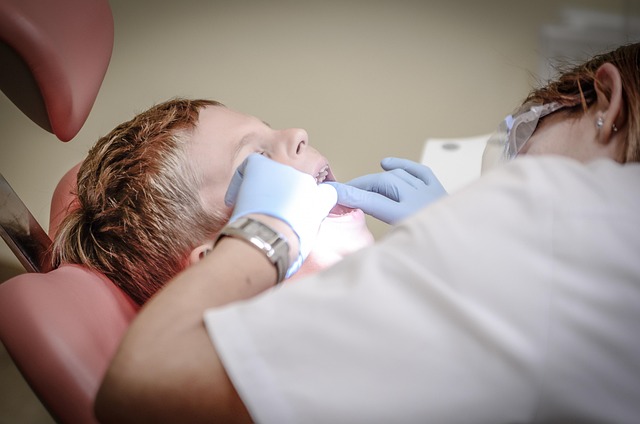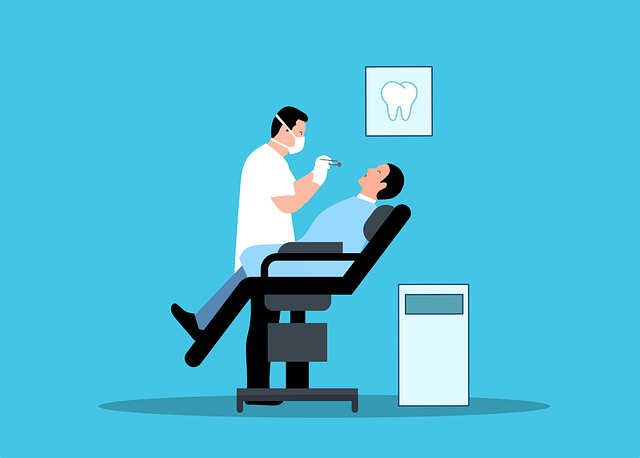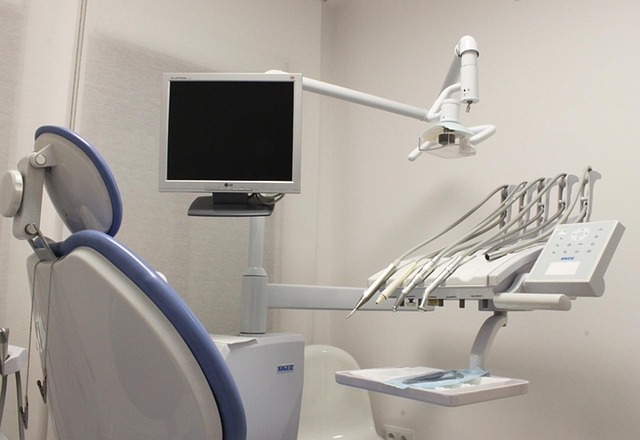Dental professionals face significant legal risks from dental professional liability, including negligence, misconduct, and breaches of protocol. To mitigate these risks, they must adopt robust risk management strategies, such as thorough documentation, adherence to industry standards, and continuous training. Comprehensive dental professional liability insurance is vital for financial protection against lawsuits and potential damages. By prioritizing risk mitigation, staying current with regulations, and maintaining meticulous records, dental professionals can defend their practices, ensure patient safety, and minimize exposure to legal claims.
Protect your dental practice from potential legal claims with this comprehensive guide. Learn about the fundamentals of dental professional liability, exploring common issues like negligence and malpractice. Discover effective risk mitigation strategies, from robust documentation to tailored insurance coverage. Understand how to build a strong defense, ensuring your practice navigates legal challenges successfully. Essential insights for dental care providers looking to safeguard their future.
- Understanding Dental Professional Liability: The Basics
- Common Legal Claims Against Dental Professionals
- Risk Mitigation Strategies for Dental Practices
- Essential Documentation and Record-Keeping Practices
- Insurance Coverage for Dental Professionals
- Building a Strong Defense: Best Practices for Dental Care Providers
Understanding Dental Professional Liability: The Basics

Dental professionals, like any healthcare providers, face potential legal claims due to the inherent risks associated with their work. Understanding dental professional liability is a cornerstone in safeguarding your practice and ensuring patient safety. This type of liability refers to legal responsibility for harm or injury that occurs as a result of negligence or malpractice during dental treatments. It covers various scenarios, from misdiagnosis and incorrect procedures to failures in patient care and communication.
Being well-informed about dental professional liability involves recognizing common pitfalls, staying up-to-date with industry standards and regulations, and implementing robust risk management strategies. Regular training, clear documentation, and informed consent processes are essential tools to mitigate risks and demonstrate due diligence. By embracing these practices, dental professionals can effectively protect themselves from potential legal claims and maintain a strong foundation for their practice.
Common Legal Claims Against Dental Professionals

Dental professionals, like any healthcare provider, face potential legal claims due to various reasons, including negligence or malpractice. Common Legal Claims Against Dental Professionals include issues related to dental procedures gone awry, such as incorrect diagnoses, improper treatment plans, or injuries caused during routine or complex dental work. Another significant area of concern is the administration of anaesthesia, where complications can arise, leading to claims of medical negligence.
Additionally, disputes may arise from patient interactions, including allegations of professional misconduct, breach of confidentiality, or discriminatory practices. Miscommunication between dental professionals and patients, as well as errors in billing and insurance processes, can also trigger legal action. Being proactive by ensuring thorough documentation, staying updated on industry standards, and implementing robust communication protocols is vital to mitigating these risks associated with dental professional liability.
Risk Mitigation Strategies for Dental Practices

Dental professionals face unique challenges when it comes to legal claims due to the intricate nature of their work. To safeguard their practices, implementing robust risk mitigation strategies is paramount. One effective approach is establishing comprehensive insurance coverage tailored for dental professionals, including malpractice and liability protection. This financial shield can significantly reduce the financial burden in case of unexpected lawsuits.
Additionally, staying updated with legal regulations and guidelines specific to dentistry is imperative. Dental professionals should regularly review and adhere to these standards to ensure their practices meet the required safety and care criteria. Regular training sessions and workshops on patient safety protocols further enhance the knowledge base of dental staff, enabling them to make informed decisions that minimize potential risks.
Essential Documentation and Record-Keeping Practices

For dental professionals, proper documentation and record-keeping are essential practices to protect against legal claims and manage risks effectively. Accurate and detailed records are crucial in establishing the standard of care provided to patients, serving as irrefutable evidence during any legal disputes related to dental professional liability. Every interaction with a patient should be documented, including initial consultations, treatment plans, procedures performed, and post-operative care instructions.
Beyond patient charts, maintaining comprehensive insurance policies and keeping up with continuing education are vital components of risk management. Dental professionals must stay informed about the latest advancements in their field to ensure they deliver the best possible care while adhering to evolving legal standards. Regularly reviewing and updating practice policies and procedures can also mitigate potential gaps that may lead to liability issues.
Insurance Coverage for Dental Professionals

Dental professionals, like any healthcare provider, face unique risks and potential legal claims due to the nature of their work. This is where comprehensive insurance coverage plays a vital role in protecting your practice and ensuring its longevity. Dental professional liability insurance is designed to shield practitioners from financial loss resulting from malpractice, negligence, or other covered incidents that may lead to patient lawsuits.
This specialized coverage includes indemnification for medical expenses, legal fees, and damages awarded to patients who suffer injuries related to dental care. It’s essential to choose a policy tailored to your specific needs, as different scenarios require varying levels of protection. By securing robust insurance, dental professionals can navigate the complexities of patient care with peace of mind, knowing they are shielded from financial ruin in the event of unforeseen legal challenges.
Building a Strong Defense: Best Practices for Dental Care Providers

Dental professionals must proactively build a strong defense against legal claims to protect their practices and reputations. This involves implementing robust risk management strategies, such as maintaining meticulous records, staying up-to-date with the latest industry standards and guidelines, and ensuring proper training for all staff members. By documenting every step of the patient care process, from initial consultation to treatment execution and post-op follow-ups, dental professionals create a clear chain of evidence that can be crucial in defending against allegations of negligence or malpractice.
Additionally, staying informed about evolving regulations and best practices specific to dental care helps providers demonstrate due diligence and adherence to industry standards. Regular staff training sessions on patient safety protocols, infection control measures, and ethical communication techniques not only enhance the quality of care but also serve as a solid defense against potential legal challenges related to dental professional liability.
